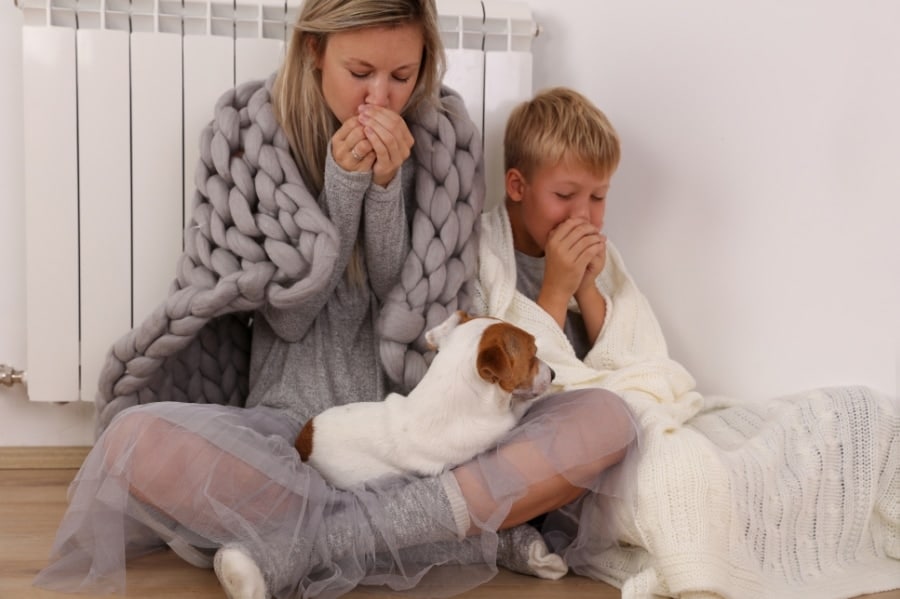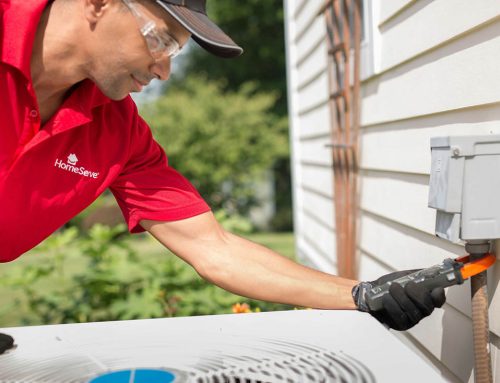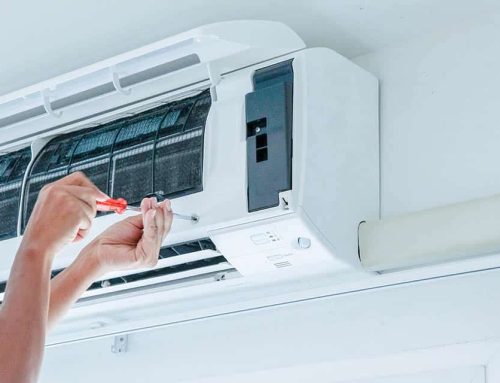
Keeping Your Heat During Extreme Cold Weather
We receive countless calls every time the temperatures drop below normal ranges, as homeowners here in Howard County encounter problems with their home’s heating system. With the record-low temperatures and extreme conditions most of the country is currently experiencing, our Environmental Systems Associates professionals want to share some insights and tips with you to keep your indoors cozy while Old Man Winter blusters away outdoors.
Heating-System Insights
Here are a few insights into your heating system’s operation during freezing weather:
• Furnaces, boilers, and heat pumps were not designed for temperatures in the -5ºF to -10ºF (and below) range—they were designed for outdoor temperatures dipping to 0ºF. And when you have wind chills near the -20ºF mark, as we have right now in this cold snap, your HVAC system is going to work much harder than usual. Keep in mind you cannot expect it to perform normally, and you may run into some problems with it.
• Even though your heating system is working at full capacity, if your home is newer, your HVAC system may still struggle to maintain your designated temperature and may not always succeed. If your home is older, your system will not be able to maintain the temperature, and it will drop. Expect to bundle up a little more.
• If you discover your home’s temperature dropping, but your vents are blowing hot air or your boiler’s radiators are still hot, this is simply due to the extreme outdoor temperatures. Just continue to be sure your heating system is operating.
Heating-System Tips
Be sure to stay safe by using common sense in these frigid temperatures. These are the type of outdoor conditions that tempt homeowners to take unwise and unsafe steps, with avoidably tragic results like fires or carbon-monoxide poisonings.
Here are some of our best heating-system tips:
• Increase your home’s temperature by a couple degrees above your normal setting now, before the worst hits, and then leave your thermostat alone. Do not turn it back down at night. In this extreme cold, your heating system will struggle to return to where you originally had it set.
• Set your programmable thermostat on HOLD once you have raised the temperature. You can return it to its normal mode once temperatures outdoors rise.
• Replace your filter, if you have a furnace. Ideally in the winter months, especially during these ultra-cold spells, you should change the filter monthly.
• Be sure your ceiling fans are on to keep the warm air moving, if they have the reverse setting for colder months.
• Set up one room in your home to be the warmest room, if need be. Close any blinds or drapes to keep warmth in, and put blankets over your windows using your curtain rod to reduce window-heat loss.
• Check all registers/air vents and radiators are clear of any obstructions or blockages. Keep furniture away to allow best airflow.
• Keep your garage doors closed.
• Avoid repeatedly opening/closing exterior doors.
• Continually check your furnace’s or boiler’s intake and exhaust white PVC pipes outdoors (on the back or side of your home) if your system is a 90 percent or more efficiency unit. It’s extremely common for ice to build up in these with the low temperatures or snow to block the openings from all the blowing. Keep the pipes clear for successful airflow. Push a broom handle in the pipe to break up any internal ice. However, if your pipes are located on your roof, do not go on your roof to clear them.
• Keep your outdoor condenser clear of snow if you have a heat pump.
• Help to heat your home with some cooking or baking—or even just boiling water. It gives extra humidity and warm temperatures to your indoor air. Under no circumstances should you ever heat your home with your oven, stove, or grill, as this is extremely dangerous.
• Be sure to keep your cupboard doors open where your plumbing is located to allow your heat to keep your pipes warmed. The last thing you want is frozen or burst pipes. In these extreme temperatures, keep all your indoor faucets on a constant trickle with room-temperature water. This also helps to prevent frozen or burst pipes.
• Check on neighbors or anyone elderly in this freezing weather to be they are safe and warm.
At Environmental Systems Associates we want to help you keep your home comfortable in these record-low temperatures and arctic weather. Follow our tips for keeping your heating system in operation. If you run into any problems, please contact us at 410.381.7991. We do have emergency service if necessary. Let’s all help each other during this biting cold weather.

